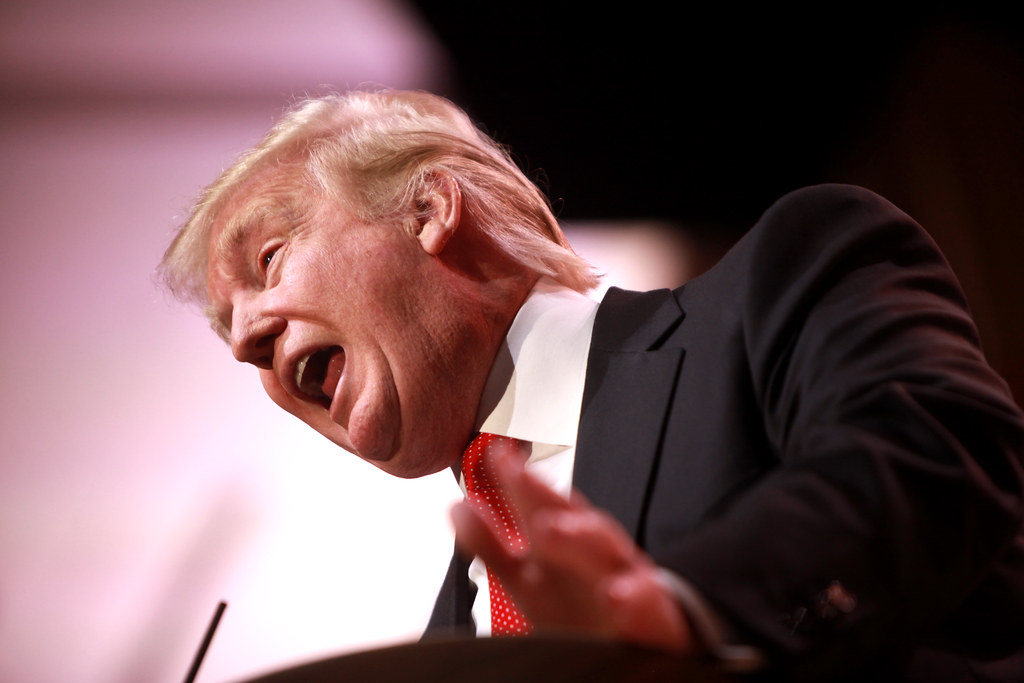Key Takeaways:
- A leading historian says the current situation is worse than Watergate.
- Trump authoritarianism shows in rapid power grabs by the president.
- Congress and the Supreme Court have failed to check these power moves.
- Federal troops have been sent to U.S. cities under the Trump administration.
- Some Republicans now back the president over the Constitution.
Understanding Trump Authoritarianism in America
A famous historian warned this weekend that Trump authoritarianism has created a crisis bigger than Watergate. Garrett Graff, who writes a popular newsletter, spoke with Emma Vigeland on a news show. He argued that fast and bold abuses of power have changed our country. In fact, he said the U.S. now faces a more serious threat than in the 1970s.
How Trump Authoritarianism Compares to Watergate
Emma Vigeland noted some links between Trump’s actions and Richard Nixon’s scandal. She asked Graff to compare the two moments. Graff replied, “We’re in a much worse spot than in Watergate.” He explained that today both Congress and the Supreme Court are helping, not stopping, the slide toward authoritarianism. Back then, he said, Republicans acted to defend the Constitution first. Now, they seem to defend the president above all.
Speedrunning Abuses of Power
Graff used a gaming term, “speedrunning,” to describe how fast Trump abuses power. He pointed to the use of federal troops in American cities. For example, agents in unmarked vehicles grabbed protestors. This move shocked many people. Moreover, experts said it set a dangerous new rule: the president can send troops to put down unrest at home. That was once unthinkable. Now, it looks normal.
Legislative Branch: Did Congress Drop the Ball?
Congress holds one of the main checks on presidential power. However, Graff said lawmakers have not used their authority. For months, they did not push back when the president ignored laws. In fact, they let him act without real oversight. Thus, the legislative branch failed its duty to protect the Constitution. Instead, many Republicans in Congress stood by President Trump.
Judicial Branch: A Blank Check?
The Supreme Court also plays a key role. Graff argued that under Chief Justice John Roberts, the court has given Trump more freedom. He said the justices have “written Trump effectively a blank check.” This means they won’t hold him accountable for possible criminal acts. As a result, the president faces almost no legal barrier at the highest level.
Why This Matters Now
This moment in history matters because it sets new rules for power. If one party controls the White House, Congress, and the Supreme Court, the risk grows. Graff warned that it changes the balance between the branches of government. Also, it weakens the checks that once kept the presidency in line.
Lessons from Watergate
Watergate ended with President Nixon’s resignation. Back then, members of his own party urged him to step down. They acted to save the office of the president, not only to save Nixon. That sense of duty protected democracy. Now, Graff believes that duty has mostly vanished from the current party in power.
Public Reaction and Concern
Many people worry that democracy is at risk. For example, protests erupted when federal troops moved into cities. They shouted for local leaders to take back control. Civilians and veterans also spoke out against the military presence. This unrest shows how intense the divide has grown. Additionally, poll numbers suggest public trust in government is low.
The Role of the Media
The media has a big job in times like these. Reporters need to show what really happens. Graff’s comments on the news show helped many see the stakes. Moreover, outlets across the country have covered Trump’s power moves. Some argue the news must stay vigilant and question every major decision.
What Happens Next?
No one knows for sure. Plans for upcoming elections will test the public’s will to act. If more voters choose leaders who value the Constitution first, the trend might reverse. However, if the same alliances persist, Trump authoritarianism could deepen. This path leads to weakened checks and unbalanced power.
How Citizens Can Respond
There are steps people can take to protect democracy:
– Stay informed by reading reliable news.
– Contact elected officials to express concerns.
– Support groups that defend the Constitution.
– Vote in local and national elections.
– Attend peaceful demonstrations if they choose.
Transition Words to Guide the Flow
Using words like however, moreover, and therefore, helps readers follow complex ideas. In this article:
– “However” marks a change in perspective.
– “Moreover” adds extra points.
– “Therefore” shows logical results.
Thanks to these words, the piece feels clear and connected.
Why Simple Language Matters
We wrote this article in plain words so that everyone can grasp big ideas. Young readers and busy adults alike need straight talk. When we cut down on jargon, we help more readers learn and engage.
Final Thoughts
Authoritarianism is more than a label. It means one person or party can act without real limits. Garrett Graff’s warning shows we face a serious challenge. In comparison to Watergate, the current mix of branches under one party creates higher risk. Citizens must stay alert and ready to act to protect their rights.
FAQs
What is Trump authoritarianism?
Trump authoritarianism refers to actions by President Trump and his allies that concentrate power and weaken checks and balances.
How did scholars compare today to Watergate?
Experts like Garrett Graff say current events are worse because both Congress and the Supreme Court fail to stop abuses of power.
Can federal troops still be used in U.S. cities?
Yes. Recent moves showed that the president can deploy troops to cities, which adds to fears about unchecked power.
How can I help defend democracy?
You can follow reliable news, reach out to elected officials, support constitutional groups, vote, and join peaceful protests.
